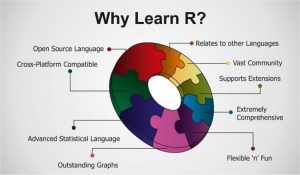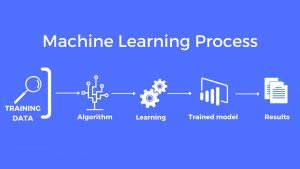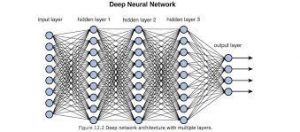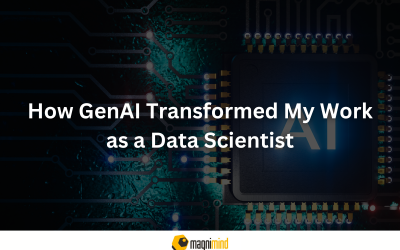From businesses and government institutions to non-profit organizations, there is a seemingly-infinite quantity of data that can needs to be sorted and interpreted to get information that can be applied for a wide array of purposes. With “big data” being the buzz word these days, pursuing a data scientist career has become one of the hottest trends of modern times. Whether you take up a full-time data science course or opt for a data science bootcamp in Silicon Valley, you’ll need to known certain trending technologies (as mentioned below) to make a mark in this field:
Python

Python
If you were to deliver Oscars to programming languages, the most-deserving candidate would have been Python. It has been the fastest-growing and most used major programming language today. Thanks to its versatility and user-friendliness, Python can be used for almost all the steps involved in data science processes. The massive libraries of Python, which are extremely easy to learn even for a beginner in the field of data science, are used for data manipulation. Apart from being an independent platform and an open source language, Python also easily integrates with any existing infrastructure, which you can then use to solve the most complex problems in data science. Python is used by many banks for crunching data while several institutions use it for data visualization and processing. Even weather forecast companies like ForecastWatch use and leverage Python.
R

R
Once, this open source language was the primary language for data science. Though it has been replaced by Python as the leading programming language that data scientists need to know, it’s still not far behind Python. The roots of R are in statistics, and it’s still extremely popular with statisticians. Be it statisticians, data scientists, or analysts – anyone wanting to make sense of data can use R for data visualization, statistical analysis, and predictive modeling. Thanks to its open interfaces, R can easily integrate with other applications and systems.
Machine Learning

Machine Learning
If you’re opting for a data scientist career, you should be familiar with machine learning. The field of data science needs the application of skills in different areas of machine learning. That’s why you should learn the main techniques for tasks such as classification, regression, clustering, and more. Within ML, you’ll explore various methods:
- Supervised Learning: Essential for tasks like classification and regression, where models learn from labeled data.
- Unsupervised Learning: Uncover hidden patterns and relationships within data through techniques like clustering and dimensionality reduction.
- Reinforcement Learning: Ideal for creating decision-making systems and agents that learn from interactions with their environment.
Knowing these will help you to solve different data science problems that are based on forecasts of key organizational outcomes.
Deep Learning

Deep Learning
Deep Learning (DL), has significantly changed various domains with its neural networks that are inspired by the human brain, enable complex tasks like:
Computer Vision: Teach machines to “see” and interpret images and videos, leading to applications in autonomous vehicles, medical image analysis, and more.
Natural Language Processing (NLP): Give computers the ability to interpret, manipulate, and comprehend human language. a subset of ML, has significantly changed various domains with its neural networks. These artificial neural networks, inspired by the human brain, enable complex tasks like:
Artificial Intelligence(AI):

Artificial Intelligence
Artificial Intelligence (AI) is the peak of data science that is not just a technology but also a vision of the future. In the AI technology here are the popular topics:
Chatbots: Chatbots are becoming more sophisticated, providing seamless customer support, personal assistance, and even emotional engagement.
Robots: AI-powered robots are transforming industries like manufacturing, healthcare, and even household tasks.
Self-Driving Cars: It is one of the most popular AI topics that is based on object detection and pose estimation computer techniques.
Computer Vision Techniques: Advanced computer vision techniques enable machines to perceive their environment, facilitating augmented reality, surveillance, and more.
Large Language Models (LLMs): LLMs like ChatGPT and Bard are setting new benchmarks in natural language understanding and generation.
Whether you’re doing a full-time course or an intensive short-term data science bootcamp in Silicon Valley, you should also learn (in addition to the above) Hadoop, SQL, and Apache Spark. Apart from the technical skills, your professional life would also demand you to be an expert in some non-technical skills. These include having:
- Intellectual curiosity to ask questions that help you discover and prepare data;
- Business acumen to have a good knowledge of the industry you’re working in and knowing what business problems you’re going to help the company solve;
- Good communication skills to fluently and clearly translate your technical findings to a non-technical team; and
- A collaborative attitude to work in a team, which could involve product managers and designers, server and client software developers, company executives, marketers, etc.
In conclusion, your data science journey encompasses a blend of technical prowess and soft skills. Python, R, Machine Learning, Deep Learning, and AI form the bedrock of your toolkit. As you explore the AI landscape, the rise of LLMs like ChatGPT and Bard showcases the transformative potential of language models. Embrace these technologies, cultivate curiosity, and foster collaboration to thrive in this dynamic field, whether you’re shaping financial strategies or revolutionizing customer interactions.


